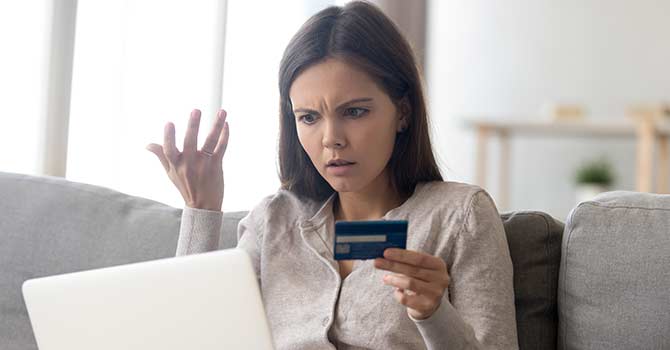You just finished a new website, fine-tuned your business strategy, and stocked up on consumer-ready inventory. Your business is ready to begin accepting payments online.
PayPal seems like a good choice to accept credit cards on your website. After all, it’s a large, well-known payments service you may already have used for peer-to-peer payments.
What could go wrong?
That depends on the types of products you sell, and how you sell them. There are a number of prohibited products that PayPal won’t accept. Most likely, though, you will still be able to start using the service to sell these prohibited products because PayPal doesn’t fully verify accounts upon activation.
Ecigarette/Vape Products
PayPal prohibits transactions for all types of tobacco products, including cigarettes, cigars, smokeless tobacco, and electronic cigarettes due to laws and regulations for online tobacco sales.
According to PayPal’s Use Policy, individuals and businesses “may not use PayPal for the sale of certain products that present a risk to consumer safety.” Tobacco products, including electronic cigarettes (ecigs, vape products, and related accessories) fall under this umbrella of prohibited products.
However, this term of use isn’t always apparent upfront. Businesses selling tobacco or vape products can begin using PayPal to sell their products because there isn’t a pre-approval process. In other words, your account is not “fully verified” out of the gate.
Down the road, PayPal, upon discovering the types of products you are selling, may unexpectedly close your account. If PayPal starts investigating, or ultimately decides to close your account, funds may be held for up to six months, or the account may be frozen or otherwise limited. During this time, it’s difficult to get any answers—or a real person on the phone at all—to clear up any confusion.
It doesn’t make sense for business owners to keep using PayPal to accept customer payments if they can’t access funds. For business operations in general, unexpected holds on funds are detrimental at best, and grounds for closure at worst.
Other Prohibited Products and Business Types
Other red flags that may prompt PayPal to limit or close an account include: a spike in sales (any volume that is higher than average), one too many chargebacks, new products, any content deemed questionable on your website, social media, or other marketing material, fraudulent activity — suspected or real — on your account, or you are in violation of PayPal’s use policy.
If you fall under one of the following categories and have begun accepting payments through PayPal, your account is at risk of closure:
- Adult products (“sexually oriented materials or services,” in PayPal’s words)
- Weapons or knives
- Multi-level marketing
- Annuities or lottery contracts
- Items for sale before the seller has control or possession of them
- Traveler’s checks or money orders
- Credit repair, debt settlement services
This is not an exhaustive list.
There are some prohibited items that PayPal describes with relatively vague wording, which are therefore open to broad interpretation. For example, you may not sell “products or services identified by government agencies to have a high likelihood of being fraudulent” or “items that encourage, promote, facilitate or instruct others to engage in illegal activity.”
If you sell anything illegal, you may not use PayPal, although that is a criteria of all payment service providers.
Accepting Credit Cards Through a Merchant Account
So, you’ve been shut down by PayPal, or you’ve done your research and determined that PayPal is not going to work for your business long-term. What’s next?
If you never want to deal with funds held for six months with no explanation, or your account getting closed out of the blue, we recommend applying for a traditional merchant account with a reputable merchant services provider.
With a merchant account dedicated to your business, you go through an approval process with an underwriting team before the account is open, so both parties (you and the merchant account provider) know what to expect. That means your account is fully verified before you start using it—no surprises down the road.
Communication and support are also benefits of having your own merchant account to accept payments. You have a dedicated account representative and a 24/7 customer service team is ready to help you troubleshoot any issues (if you sign up with a well-equipped merchant services provider—you should ask about this complimentary support before you apply), whereas PayPal support is not readily accessible.
If you’ve been approved for a merchant account, your merchant services provider has experience with your business type and can set you up with the tools and resources your business needs to thrive.
With the right merchant account provider, these complimentary add-ons include fraud and chargeback prevention tools, integration support so your online payment gateway works seamlessly with your ecommerce platform, accounting app, CRM solution and more, and the ability to scale as your business grows.
Merchant account processing fees are also lower than PayPal if your business is accepting more than a few hundred dollars a month, making a merchant account a lucrative investment for your growing business.
Accepting payments through an online payment gateway, such as Authorize.net, also shows your customers that your business is experienced and of a good size, as the PayPal logo is mostly seen on smaller business websites.
In addition to credit cards, an online payment gateway also allows customers to pay with electronic check (ACH transfer), and, no matter the payment method, you have the opportunity for next-day funding.
Apply for a merchant account to get set up with an online payment gateway and say goodbye to held funds, disgruntled customers who are suddenly unable to check out of your website, and other costly damage control because of the types of products you sell.
If you have any questions, feel free to contact us for a free, zero-obligation consultation.



